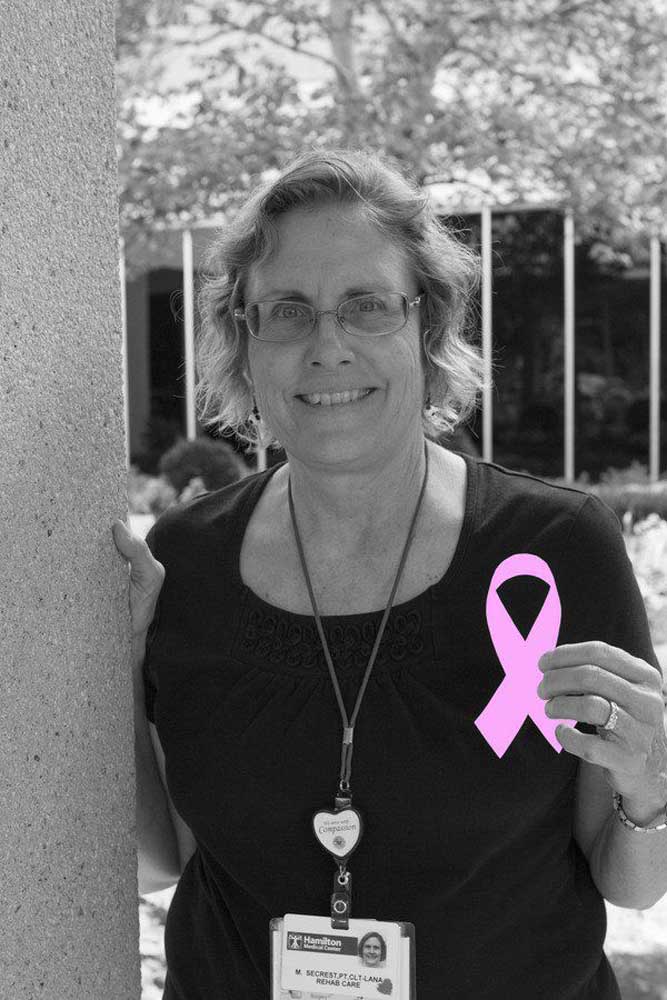Great minds pink alike
Published 9:00 am Sunday, October 1, 2017

- Margaret Secrest
Many people have been affected by breast cancer, whether the diagnosis is for themselves, a family member or a friend. Breast cancer is the second most common cancer among American women.
October is Breast Cancer Awareness Month, and Hamilton Medical Center is once again supporting breast cancer awareness through it’s “Great Minds Pink Alike” campaign.
Trending
“We want the community to remember take steps to prevent breast cancer as well as detect it early when it appears,” said Rachel Ogle, marketing outreach manager for Hamilton Health Care System. “In addition, we want to support the many people who have battled breast cancer as well as their family members.”
Being proactive with breast health screening including yearly mammograms beginning at age 40 is very important,” said Dr. Eric Manahan, a local surgeon who has a special interest in breast cancer. “The goal of screening mammograms is to detect cancers at their earliest stage and begin treatments as early as possible so we can have the best available outcomes.”
Mammograms are covered by most health insurance programs. You can get a screening mammogram without any out-of-pocket costs.
Most breast cancers are found in women who are 50 years old or older, but breast cancer also affects younger women. About 10 percent of all new cases of breast cancer in the United States are found in women younger than 45 years of age.
But it’s not just women who can get breast cancer. Though it is much more common in women, some men are diagnosed with the disease. Less than 1 percent of breast cancers occur in men.
It is important to be aware of the risk factors for breast cancer so the proper screenings can be performed. You should talk with your doctor about your risk factors and any concerns that you may have.
Trending
Common risk factors include: genetic mutations to certain genes (such as BRCA1 and BRCA2), early menstrual period (starting before age 12), late or no pregnancy (first pregnancy after age 30 and never having a full-term pregnancy), starting menopause after age 55, not being physically active, being overweight after menopause, personal and family history of breast cancer, taking birth control pills and heavy alcohol use.
Some factors can’t be changed, but there are things you can do to lower your risk. Exercising regularly (at least four hours a week) and maintaining a healthy weight can make a big difference. Research shows getting plenty of nighttime sleep, eating healthy, limiting alcohol and avoiding exposure to carcinogens (cancer causing chemicals) decreases your chances for breast cancer. Also, breastfeeding your children, if possible, has been shown to reduce risk. And, of course, regular breast self-exams and scheduled mammograms are key in early detection.
It’s important to note that having a risk factor does not mean you will get the disease, and not all risk factors have the same effect. Most women have some risk factors, but most women do not get breast cancer.
A breast cancer diagnosis can have various effects on people.
“When I heard the words ‘You have cancer,’ I was scared, and a flood of thoughts crossed my mind,” said Kay Brackett, Hamilton Medical Center Information Services projects analyst. “Why me? I don’t have time to be sick, and who would take care of my family and friends if I don’t survive?”
Brackett says the journey to beat cancer has forever changed her life.
“I now cherish the small things in life that I have often taken for granted,” she says. “I learned that every day is a gift from God, and I gained courage to listen and have compassion for others who are diagnosed.”
Margaret Secrest, Bradley Whiteside Rehabilitation physical therapist and breast cancer survivor, says that being a breast cancer survivor has helped her to understand issues with her patients on a personal level. “I’m more able to encourage them through their journeys,” she says.
Manahan says that when someone gets a breast cancer diagnosis, the best thing to do is to stop and take a breath.
“This is not a surgical emergency to rush,” he says. “This is an ‘emotional emergency’ and we need to be able to make the best decision on your particular treatment option. Breast cancer care is evolving and improving at a very fast rate. Let’s make sure we have all of the information and are ready to proceed in your best interests for your particular tumor with the latest and most up-to-date treatment options.”
Lisa Gibbs, a registered nurse at Hamilton Medical Center Clinical Development, was diagnosed with breast cancer in 2014.
“My Hamilton family took excellent care of me physically, mentally and emotionally,” she says. “Some of them provided words of encouragement, and others provided my treatments, but everyone helped me to become a survivor.”
To schedule a screening mammogram (3D mammograms available) at Hamilton Diagnostics Center (HDC), call (706) 272-6565. A doctor’s order is necessary. HDC is the only Breast Imaging Center of Excellence (designated by the American College of Radiology) in the Dalton area.





